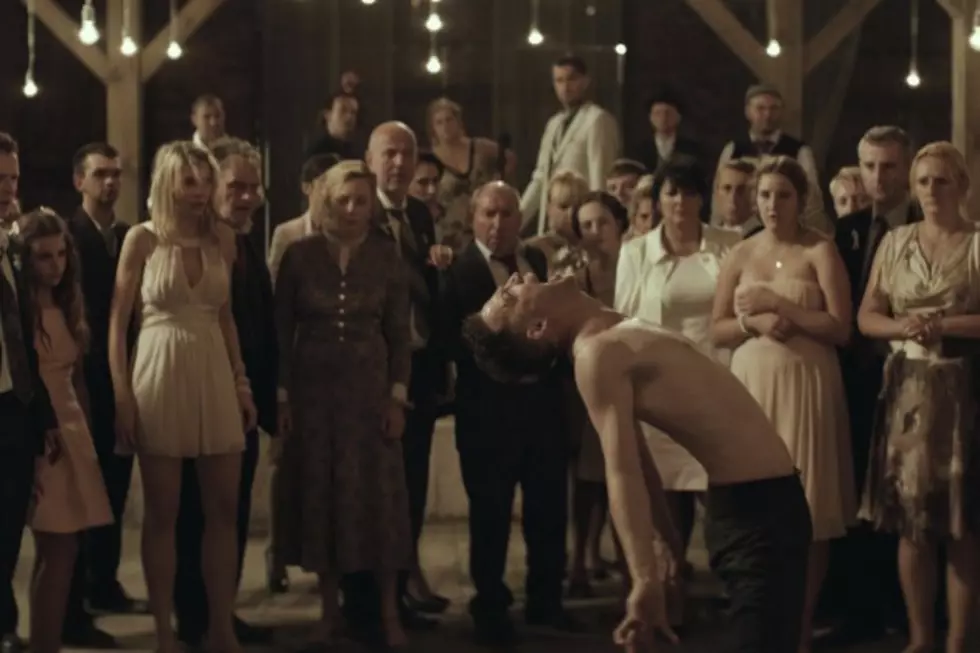
‘Demon’ Review: A Horror Movie as Tragic as It Is Terrifying
Seven days before Demon made its U.S. premiere at Fantastic Fest 2015, its director, Marcin Wrona, died in a hotel room in Poland. He was 42 years old. The preliminary autopsy indicates Wrona committed suicide. If Wrona was alive and well, Demon would still be a brilliant film, an impressive and inventive blend of psychological horror and sardonic comedy. But his suicide casts the entire film in a whole new light, and adds even more poignance to the already heartrending story of a seemingly happy man who succumbs to an inexplicable breakdown.
The man is Piotr (Itay Tiran), who’s traveled from England to Poland to marry Zaneta (Agnieszka Zulewska). The whole event will take place on the grounds of her family’s home, which Zaneta’s father plans to give to the couple as a wedding present. During the preparations for the big day, Piotr accidentally stumbles on a pile of human bones in a makeshift grave. He quickly covers over the remains, but he’s haunted by the discovery, first metaphorically, but then in a more literal way. As the wedding progresses and the vodka flows (and flows and flows), Piotr’s behavior begins to shift in alarming ways. Has he had too much to drink? Could he be an epileptic? Is he stumbling into a marriage he’s not really prepared for? Or could be actually be possessed by a dybbuk, a demon of Jewish legend?
One of Demon’s greatest strengths — and Wrona’s smartest choices — is the way the film allows all those readings to coexist and intermingle. Even if Piotr is possessed by some kind of dybbuk, Demon still works equally well as a metaphor for the crippling impact of an unexpected emotional breakdown. Without any elaborate makeup or special effects, Tiran undergoes an incredible transformation over the course of the film, and it’s wrenching to watch his inexplicable decline. It’s equally wrenching (and, at times, surprisingly funny) to watch his in-laws work overtime to pretend everything’s fine with the newest member of their family. Even as Piotr’s condition deteriorates, Zaneta’s dad works overtime to “keep up appearances,” plying their guests with more booze and encouraging them to keep drinking and dancing, an effort that grows more disturbing (and more hilarious) with each new scene.
Anyone who’s ever attended a party and felt pressured to have a good time even when things were clearly going badly can relate to these sequences, and they resonate strongly with the ongoing subplot of that mysterious body, and the way Zaneta’s family fights to keep it buried (or to pretend it doesn’t exist at all). There’s definitely a larger message here about the danger of living in denial, and of Poland’s relationship to its Jewish citizens, though some of the finer points may get lost on domestic viewers.
What won’t get lost on American audiences are the rustic and ominous beauty of Demon’s photography (shot by Pawel Flis), and the power of the film’s unsettling ending. That ending only gets more potent when you read about Wrona’s life and its tragically early end. Whatever Demon’s autobiographical elements, this film feels incredibly personal; like a howl of pain ripped straight out of someone’s soul.
More From ScreenCrush









